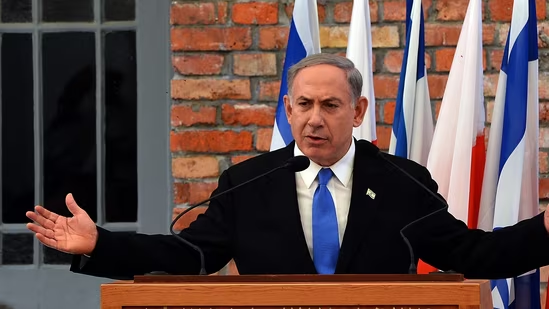New delhi (Nistha Agrawal):On January 15, 2025, a significant ceasefire agreement was reached between Israel and Hamas, marking a pivotal moment after 15 months of intense conflict that began on October 7, 2023. The agreement, announced by President Joe Biden and mediated by Qatar, aims to halt hostilities in Gaza, facilitate the release of hostages, and allow humanitarian aid to flow into the region. The war erupted on October 7, 2023, when Hamas militants launched a surprise attack on Israel, resulting in the deaths of over 1,200 Israeli citizens and the abduction of hundreds of others.

- In retaliation, Israel conducted extensive airstrikes in Gaza, leading to a staggering death toll of more than 46,000 Palestinians, with many rights organizations accusing Israel of war crimes—a claim the Israeli government denies. The ceasefire agreement is structured in three phases:
- Phase One:A complete halt to hostilities, the release of hostages held by Hamas, and the return of Palestinian prisoners held by Israel.
- Phase Two:Negotiations for a permanent ceasefire and further releases of hostages.
- Phase Three:The return of deceased hostages’ remains and the initiation of reconstruction efforts in Gaza.

- President Biden emphasized that the deal would not only reunite families but also allow for a surge of humanitarian assistance to the Palestinian civilians who have suffered immensely during the conflict. Despite the announcement of the agreement, there have been significant hurdles. Netanyahu’s office accused Hamas of reneging on parts of the deal, particularly regarding the deployment of Israeli forces in the Philadelphi corridor, a strategic area along the Gaza-Egypt border.
- Hamas has denied these claims, asserting its commitment to the ceasefire. The ceasefire has faced fierce opposition from Netanyahu’s far-right coalition partners, who are critical of any agreement with Hamas. National Security Minister Itamar Ben-Gvir has threatened to resign if the ceasefire is approved, putting additional pressure on Netanyahu’s government.
- The Israeli Prime Minister is caught in a precarious position, needing to balance the demands of his coalition while also addressing the humanitarian crisis and the international community’s calls for peace.
- The ceasefire agreement has been welcomed by various international leaders and organizations, who see it as a critical step towards alleviating the humanitarian crisis in Gaza.

- UN Secretary-General António Guterres and other world leaders have called for the swift implementation of the agreement, emphasizing the need for humanitarian access to the affected populations. The ceasefire agreement between Israel and Hamas represents a potential turning point in a long-standing conflict that has caused immense suffering on both sides. As the Israeli government prepares to vote on the deal, the outcome will be crucial in determining the future of the region and the lives of countless individuals affected by the war. The international community watches closely, hoping for a lasting peace that can pave the way for recovery and stability in Gaza.
---------------------------------------------------------------------------------------------------














